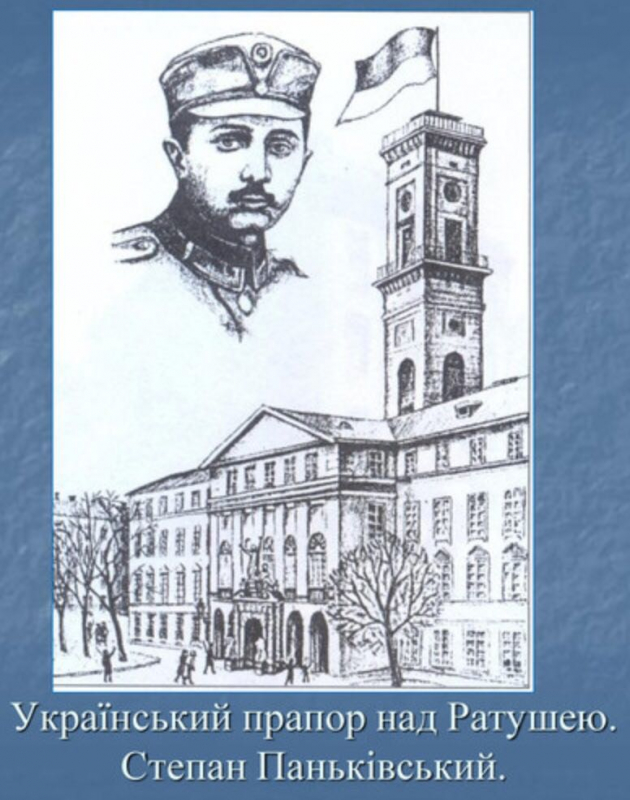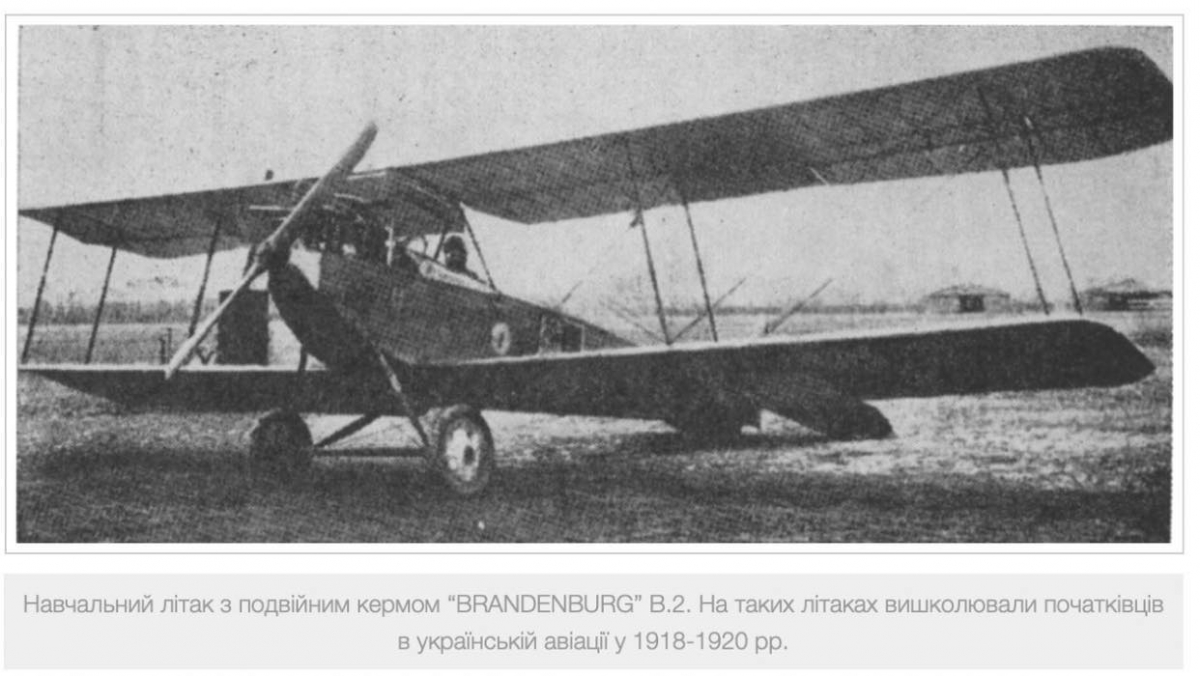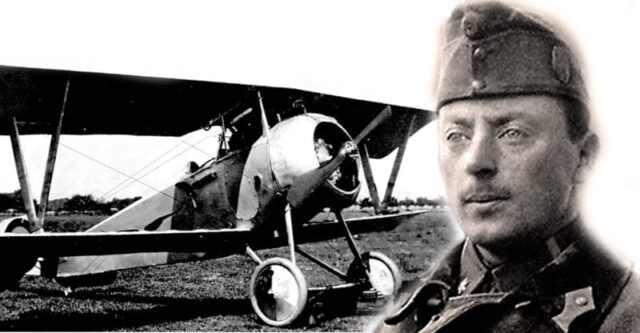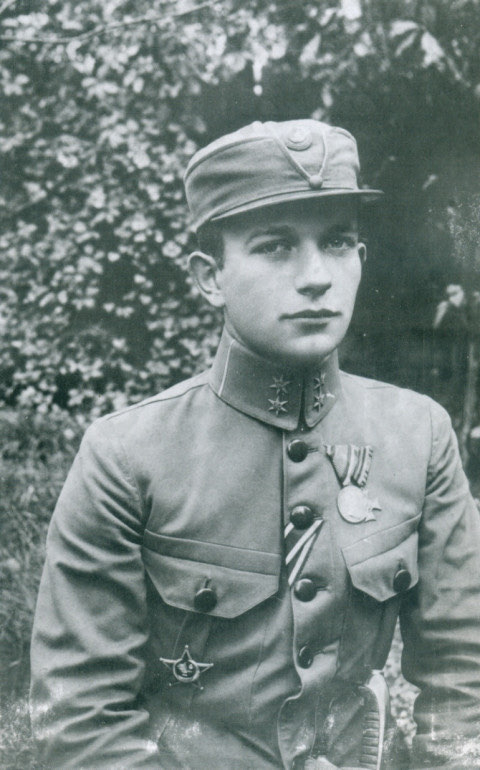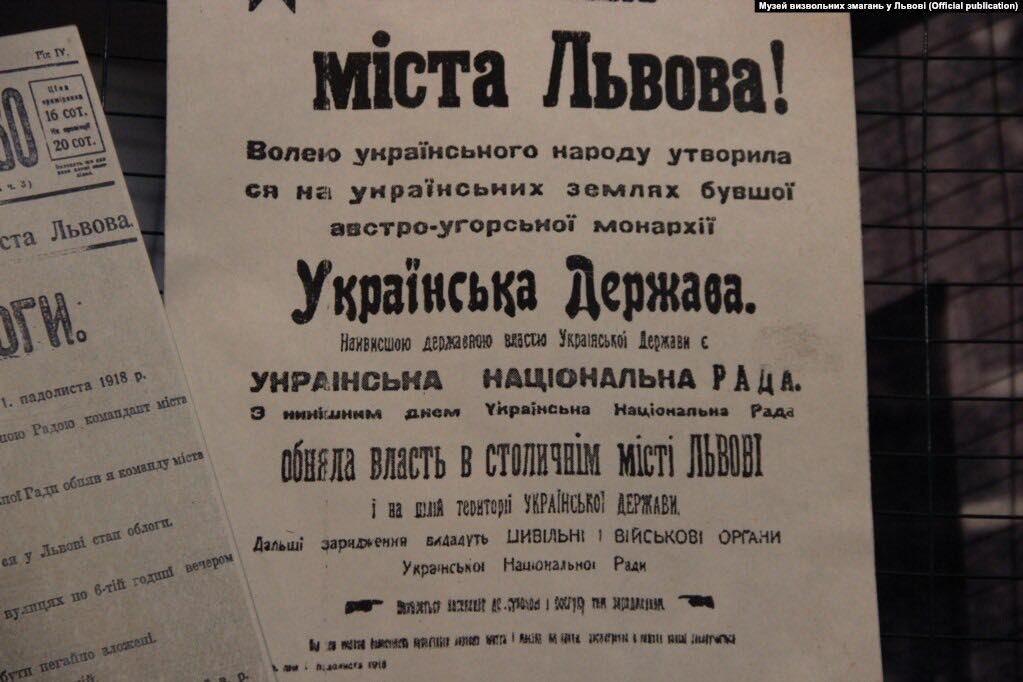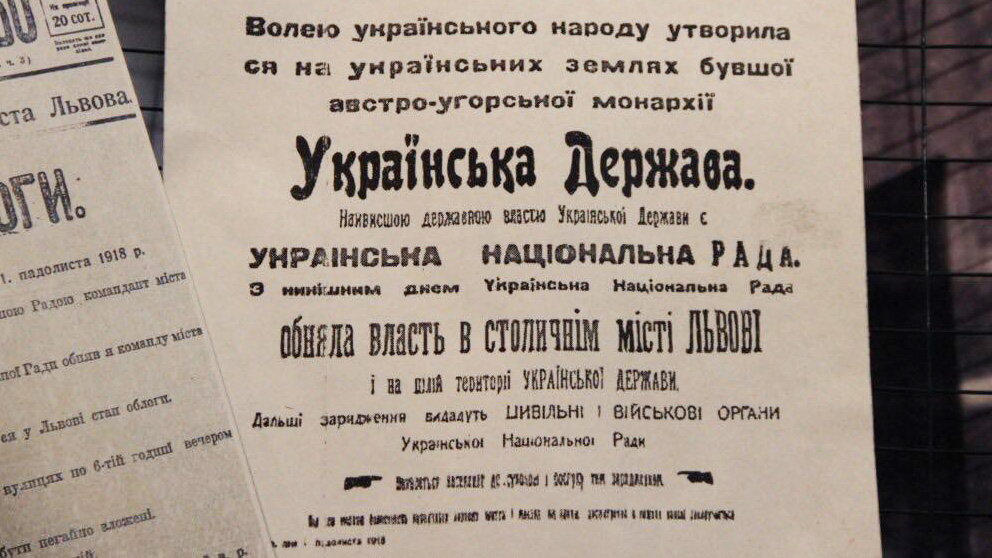The autumn of 1918 signaled significant geopolitical changes: the days of Austria-Hungary, which covered the territories of twelve modern states, were numbered. The nation-building movements activated the peoples of the monarchy. Ukrainians also nurtured hope.
On Sunday, October 20, 1918, Lvivites gathered on St. George’s Square. The well-known politician Kost Levytskyi announced the formation of the State on the Ukrainian ethnic lands of the Austro-Hungarian Monarchy, which was approved by the Ukrainian National Council the day before. Its implementation began on November 1. On the same day, there were formal changes in the government’s powers, according to which power was transferred to the Council of the Ukrainian People’s Republic: on behalf of Austria-Hungary the protocol was signed by Volodymyr Detsykevych, Deputy Imperial Viceroy of General Karl Huyn; from the Council of the Ukrainian People’s Republic – Kost Levytskyi and others. On November 13, the «Temporary Basic Law on the State Independence of the Ukrainian Lands of the Former Austro-Hungarian Monarchy...» was approved, in which the state was called The West Ukrainian People’s Republic (WUPR).
The affirmation of WUPR required considerable efforts. The Poles considered the Ukrainian territories as part of their state, so this could not but cause a war. Barricades appeared on the streets of Lviv, the capital of the proclaimed state, on different sides of which also were Polytechnic students. The first to defend the state were volunteers of the Legion of Ukrainian Sich Riflemen. Subsequently, Ukrainian legionnaires became the cornerstone of the Ukrainian Galician Army – the armed forces of the West Ukrainian People’s Republic. Among the worthies who began to fight for statehood and defended Lviv there were also Polytechnic students, including:
Osyp Bukshovany (1.06.1890 – 1937). Some sources indicate he was from a priestly family. In the fall of 1918, Osyp headed the Legion of Ukrainian Sich Riflemen. On November 3, he arrived in Lviv to defend the city. From December 1918, he was the commander of the combat group "East", the 1st brigade of the Ukrainian Sich Riflemen, the part of the Ukrainian Galician Army (UGA). He is one of the developers of the Chortkiv Offensive, UGA June Offensive plan.
Petro Franko (12.07.1890 – 1941?), the son of public activist Ivan Franko. Sources inform that in the November battles for Lviv, lieutenant Franko with a machine gunners of the Ukrainian Sich Riflemen occupied a position on the High Castle. On December 1, 1918, Petro was appointed as "commander and referent of aviation at the State Secretariat of Military Affairs" (until April 10, 1919). Quite successfully, he organized the first air base in Krasne near Lviv. Till 1919, the air forces of the UGA included 35 officers and 300 soldiers and consisted of 3 aviation hundreds, the aviation school, a technical hundred and a service hundred. Petro Franko, sotnyk of the WUPR army, flew more than 50 times beyond the front line.
Stepan Pankivskyi (6.07.1899 – March 1919), the son of public activist Konstantyn Pankivskyi. It is known that Stepan belonged to a group of Sich Riflemen, which on the night of November 1, 1918, raised the Ukrainian flag on the Lviv town hall. From sources we learned about his participation in patrolling/defending the city. The lieutenant died in battle. He was found on a railway embankment between the villages of Rodatychi and Vovchukhy (today Horodok urban territorial community, Lviv region).
There were many brave Polytechnicians who fought for statehood on various fronts: Roman Dudynskyi, Mykhailo Zaishlyi, Pavlo Liskevych, Vasyl Ryzhevskyi, and others. This article is an impetus for interest and further research.
It was not possible to achieve victory on the battlefield. However, it confirmed the narratives of the state which were implemented centuries later. Sensing the call of their old comrades, Lviv Polytechnicians are once again holding the line!
